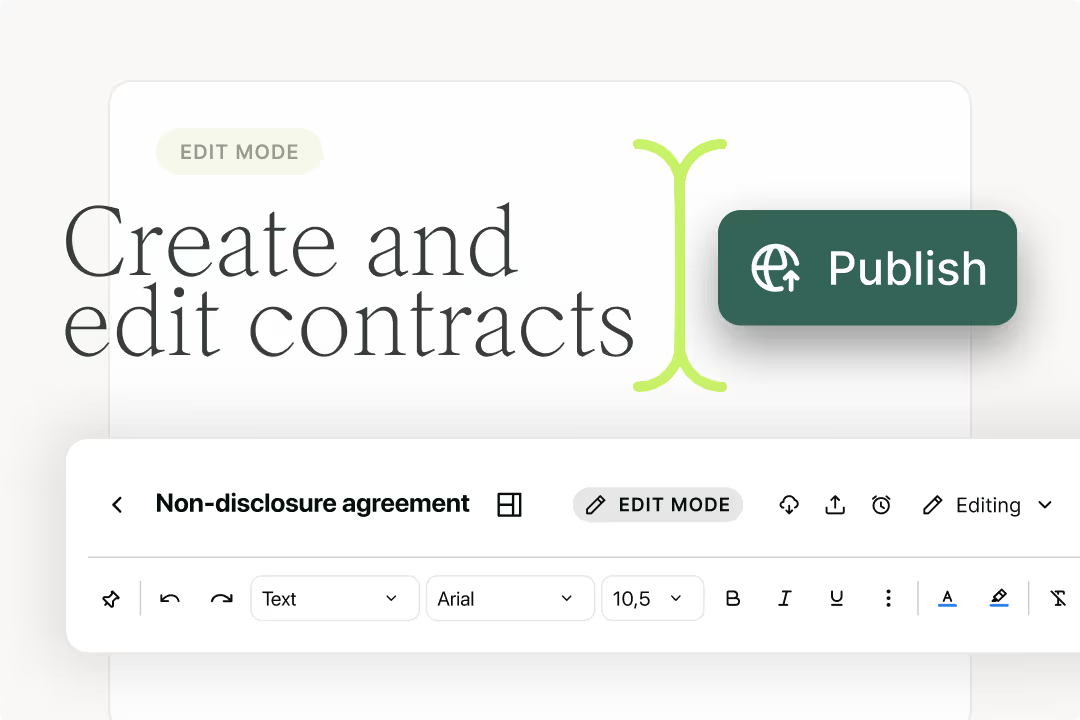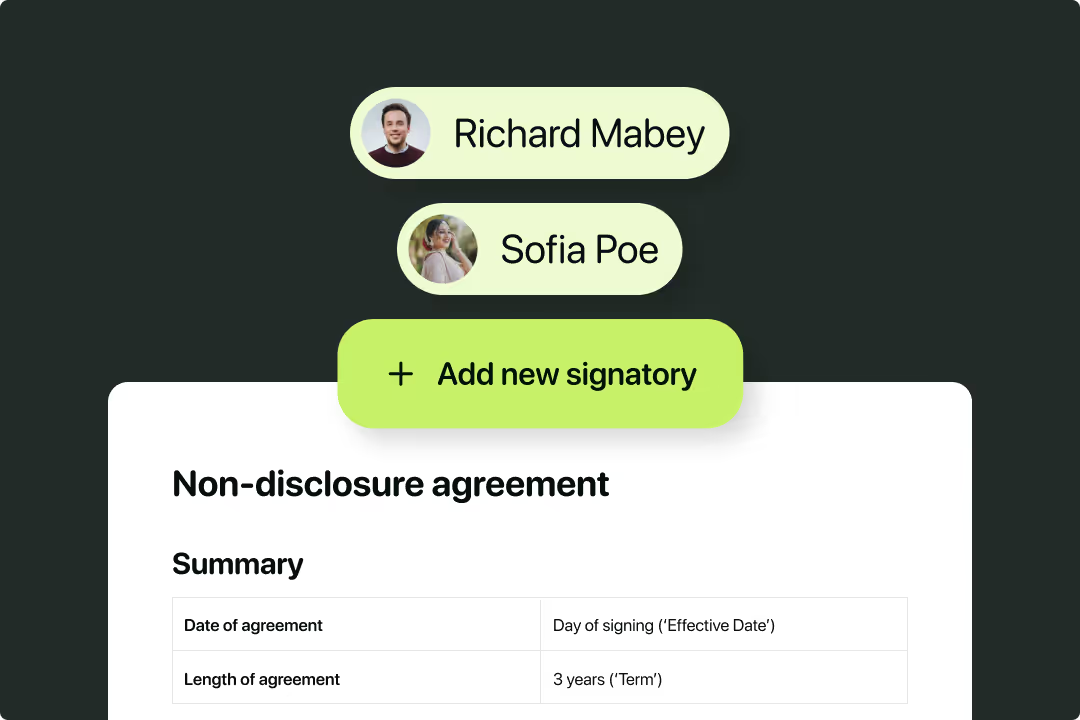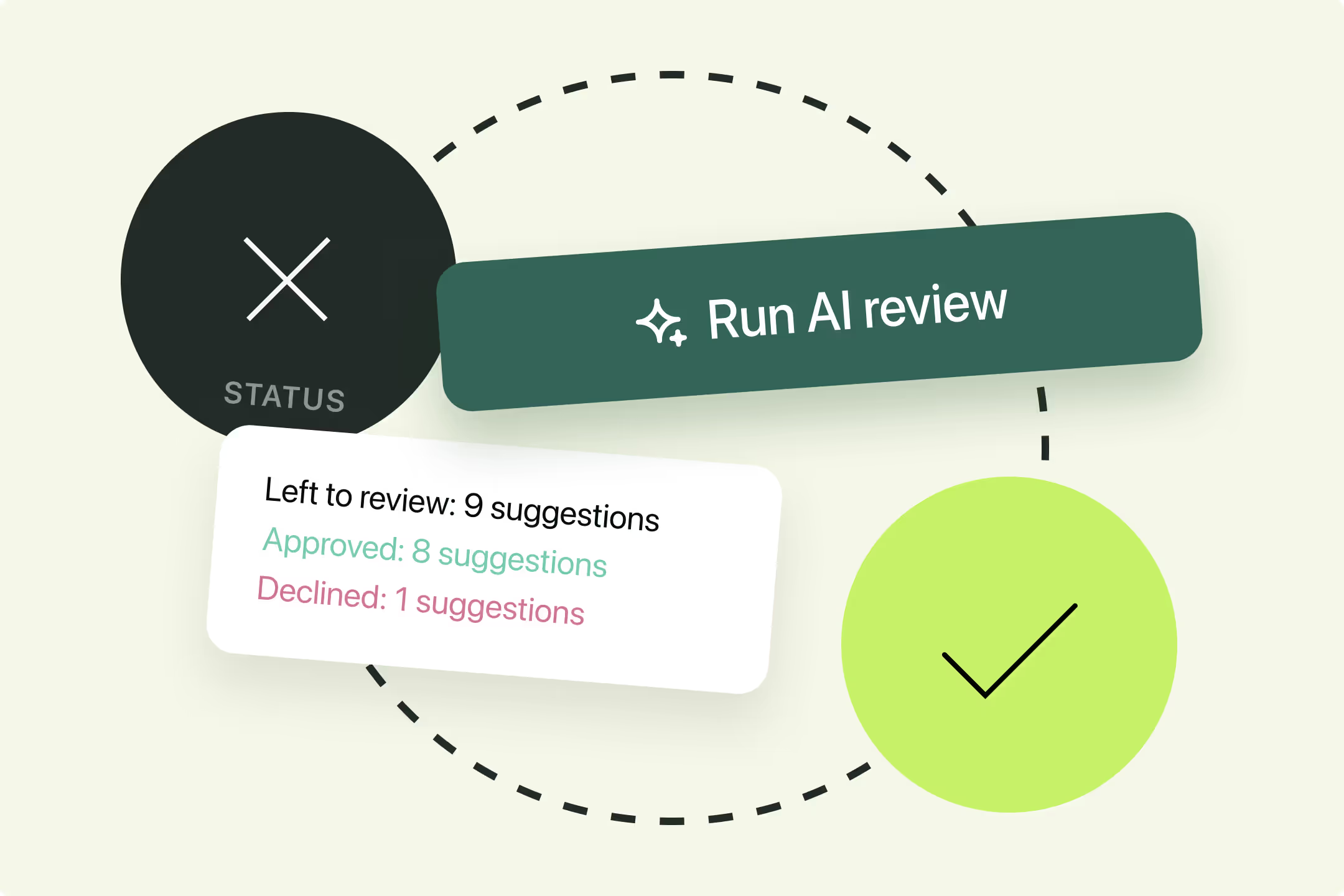Solutions
Customer Support
Resources
There is plenty of scope for mistakes in contract negotiation. But the biggest mistake of all is failing to prepare.
Preparation is the best way to manage your time, strengthen your position and achieve the results you want from a contract negotiation. This post explores what this preparation involves and how you can get started.
The single most important way to prepare for a contract negotiation is to have a contract to negotiate. It sounds simple, right?
You’d be surprised how many parties try to pre-emptively negotiate the terms of an agreement without first having the agreement in writing. This typically happens when the lines between sales discussions and contract negotiations become blurred.

Although it can be tempting to dive straight into negotiating the terms of a potential relationship in detail, this process is far more effective when there’s a formal document in place to capture all of the relevant terms.
Otherwise, you’ll either repeat the negotiation process once a contract is eventually drafted, or worse, you’ll approve a contract without actually acknowledging all of the terms.
The best way to ensure that you’re always starting contract negotiations with a draft is to use automated contract templates. By automating contracts using a tool like Juro, creating contract drafts is effortless, so there’s no excuse for not having one to hand.
One of the best ways to prepare for a contract negotiation is to understand who’s going to be on the other side of the table, and what they might want from any amendments. Having this information prior to the negotiation will give you an opportunity to build a more compelling case that’s tailored to that individual’s wants and needs.
It’s also a great way to show professionalism and respect. By understanding the counterparty in preparation for a negotiation, you can reduce time spent trying to understand each other’s perspectives during the negotiation and spend more time revising the terms that matter most.
It sounds obvious, but another effective way to prepare for a contract negotiation is to brush up on your negotiation skills. You could do this by completing a contract negotiation course, or familiarising yourself with the best contract negotiation strategies.
You might even want to polish your negotiation skills by rehearsing the negotiation with a colleague. This can enable you to preempt any points of friction and brush up on your objection handling skills, too.

It’s rare for contract negotiations to run smoothly 100 per cent of the time. As most experienced lawyers will tell you, there are both successful negotiation sessions and disastrous ones.
Fortunately, having these experiences is one of the best ways to prepare for a contract negotiation. It gives you the perfect opportunity to identify what works in certain scenarios - and what doesn’t.
Another great tip is to look back on previous contracts and review the contract data within them. This can be achieved quickly with the help of a contract repository or contract storage system, and it’s an effective way to recognize which terms have created friction between parties in the past.
No matter how many contracts you’ve managed throughout your career, leaving contract review until the last minute is always a bad idea.
It’s important to give yourself enough time and headspace to review the contract thoroughly before entering into the negotiation phase of the contract lifecycle. This time enables you to build more robust arguments, mitigate risk and negotiate more confidently.
One of the most important negotiation preparation tips is to know your position inside out. This means deciding what you’re willing to accept and where your sticking points lie.
If you enter a negotiation exercise without knowing what your concessions and non-negotiables are, you’re more likely to make rash decisions. More alarmingly, you might make decisions that haven’t been approved by the relevant stakeholders within your business.

The best way to prepare for these negotiations is to discuss what you’re willing to compromise with other teams involved in the contract’s execution in advance. This can prevent further delays by eliminating the need to request contract approvals mid-negotiation.
It’s common for legal teams to become fixated on the notion of ‘winning’ a negotiation. But is this really the goal of contract negotiations?
One of the most important things to consider before entering into a negotiation of any sort is that negotiations don’t necessarily need to have a winner and a loser. In fact, it’s often better for the health of the relationship if both parties win, at least to an extent.
By adopting the mindset that negotiations can be collaborative processes rather than competitive ones, you can focus on the contentions that matter most to your business, not just your desire to ‘win’.
One contract management mistake commonly made by businesses is to go into a negotiation with no set agenda.
Too often, parties approach negotiations with the intention to go through the entire contract’s contents in the order it’s been written. This is a comprehensive approach to negotiation, but is it realistic?
Honestly, no. Lawyers are extremely busy. They don’t have the time or energy to discuss every single term in a contract during a negotiation. They only need to discuss the ambiguous or contentious clauses that create friction.
Drafting an agenda for a negotiation meeting beforehand is a great way to map what these friction points are and prioritize them accordingly. Creating a clear structure ahead of the meeting is also an effective way to ensure that you’ve covered absolutely everything that requires both parties’ attention.
One way to make contract negotiations as painless as possible is to create the perfect environment to conduct these negotiations. Traditionally, this environment would be quiet office space where parties discuss a contract’s terms in-person.
However, it’s rare for contracts to be agreed in this way nowadays. Most contracts are negotiated remotely and online. There are lots of difficulties with this, including a loss of version control and painful redlining processes in Word.
Fortunately, contract management software removes this friction, making it quicker and easier for business and legal teams to negotiate contracts online.

Adopting software like this can transform future negotiations and ensure you’re receiving the most value from your contracts that you can.
Want to remove friction and make contract negotiation seamless?
Juro’s all-in-one contract automation software removes bottlenecks from the negotiation process by enabling legal and business teams to agree and manage contracts all in one place. Complete the form below to find out more.

Lorem ipsum dolor sit amet, consectetur adipiscing elit. Suspendisse varius enim in eros elementum tristique. Duis cursus, mi quis viverra ornare, eros dolor interdum nulla, ut commodo diam libero vitae erat. Aenean faucibus nibh et justo cursus id rutrum lorem imperdiet. Nunc ut sem vitae risus tristique posuere.

